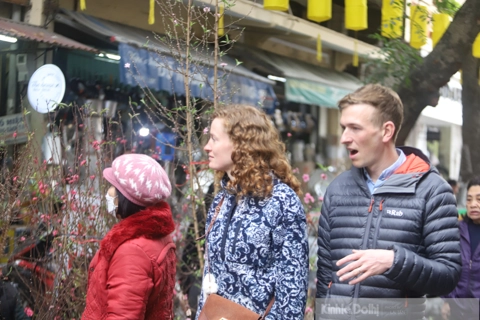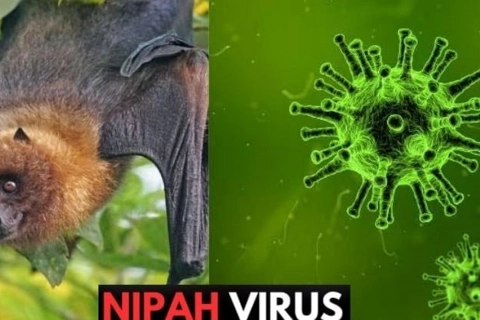Vietnam tightens entry surveillance over fears of Monkeypox
According to WHO, Monkeypox is a viral zoonosis (a virus transmitted to humans from animals) with symptoms similar to those seen in the past in smallpox patients, although it is clinically less severe.
Vietnam’s Ministry of Health (MoH) has asked localities to ramp up surveillance in border areas for controlling possible cases of monkeypox, which has reportedly spread to at least 12 countries worldwide.
The ministry has also requested functional units to carefully monitor the status of monkeypox to prevent the disease from being imported into Vietnam, while continuously working with the World Health Organization (WHO) to timely update the status of this disease, along with response measures.
Entry quarantine at Vietnam's airport to ramp up surveillance to prevent the spread of monkeypox disease. Photo: Hoang Trieu |
WHO reported that as of May 26, there have been 131 confirmed monkeypox patients and 106 suspected cases in 12 nations, including Australia, Belgium, Canada, Finland, France, Germany, Italy, Portugal, Spain, Sweden, the UK, and the US, which are not the inherently endemic areas of the virus. WHO forecasts an increase in suspected monkeypox cases, so it has expanded its monitoring scale.
“Monkeypox was usually zoonotic, but the human-to-human transmission was possible through contact with wounds, bodily fluids, and contaminated objects. They leave scars when disappearing,” WHO said.
It noted some of the symptoms that distinguish common smallpox from monkeypox are high temperature and a nasty rash appearing on the face and gradually on other parts of the body 1-3 days after the fever.
WHO recommended that people avoid contact with those having smallpox, including sexual intercourse, and disinfect their hands often.
Those coming to countries where monkeypox is present need to avoid contacting sick mammals, eating their meat, or coming in contact with them, the organization stressed.
Many organizations and scientists are monitoring the disease status worldwide for appropriate warnings and timely treatments.
Monkeypox is a viral disease that can occur in certain animal species, including humans. Symptoms include fatigue, fever, headache, and muscle pains, followed by rash and blisters.
However, scientists do not expect the outbreak to evolve into a pandemic like Covid-19, given the virus does not spread as easily as SARS-COV-2.












